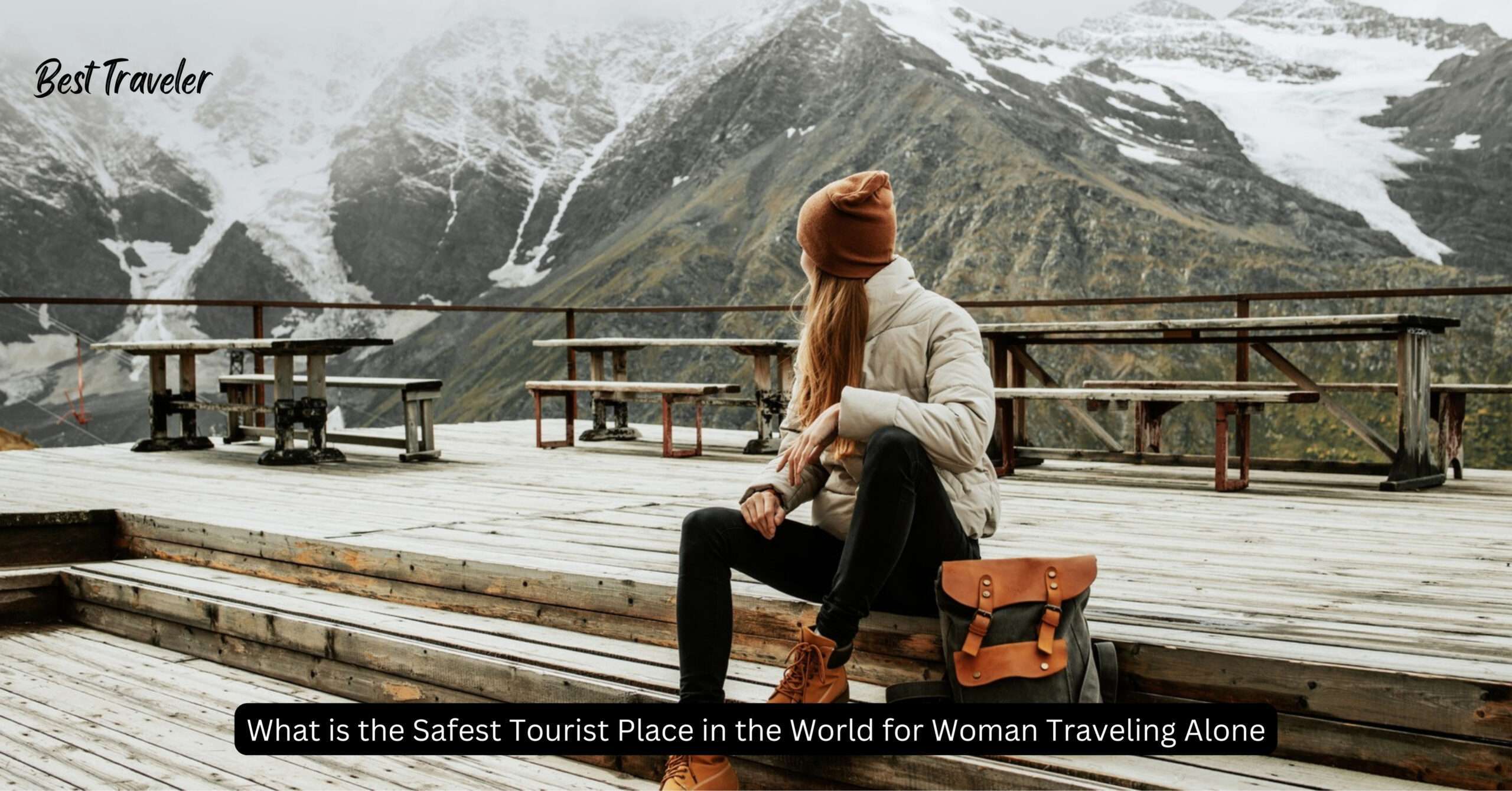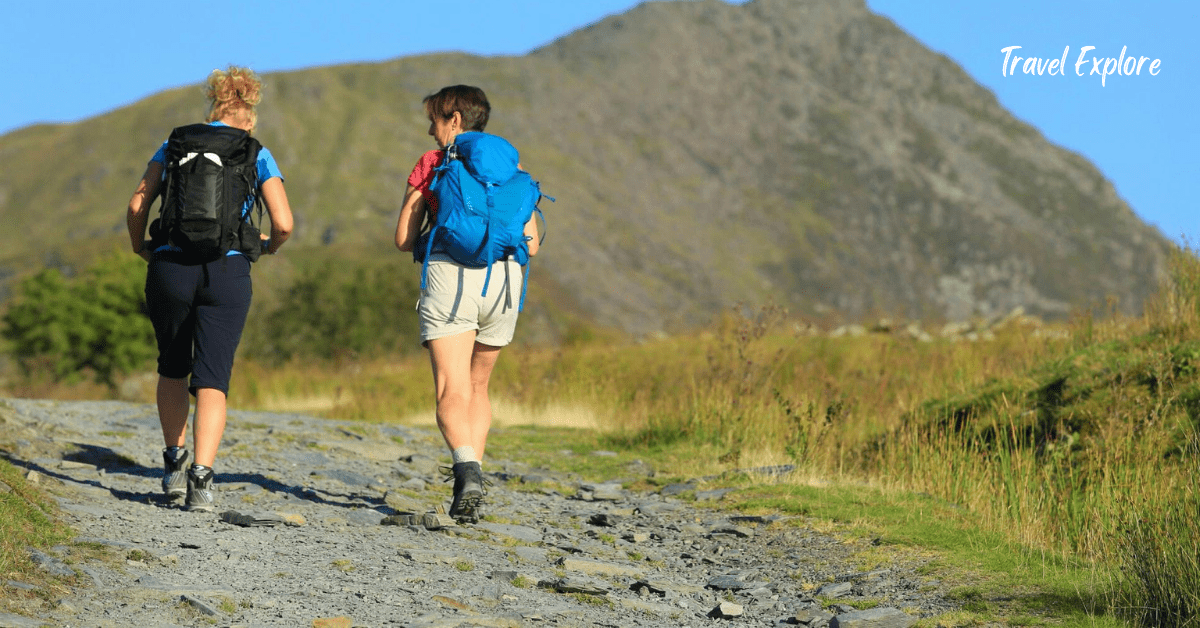What are Safe Countries to Travel to?

In an increasingly interconnected world, travel has become more accessible and appealing to people from all walks of life. However, not all countries are equal when it comes to safety for travelers. Whether you’re planning a solo adventure, a family vacation, or a romantic getaway, prioritizing safety is paramount. But how do you determine which countries are safe to travel to? This comprehensive guide aims to answer that question by examining various factors that contribute to a destination’s safety profile.
Understanding Safety Factors
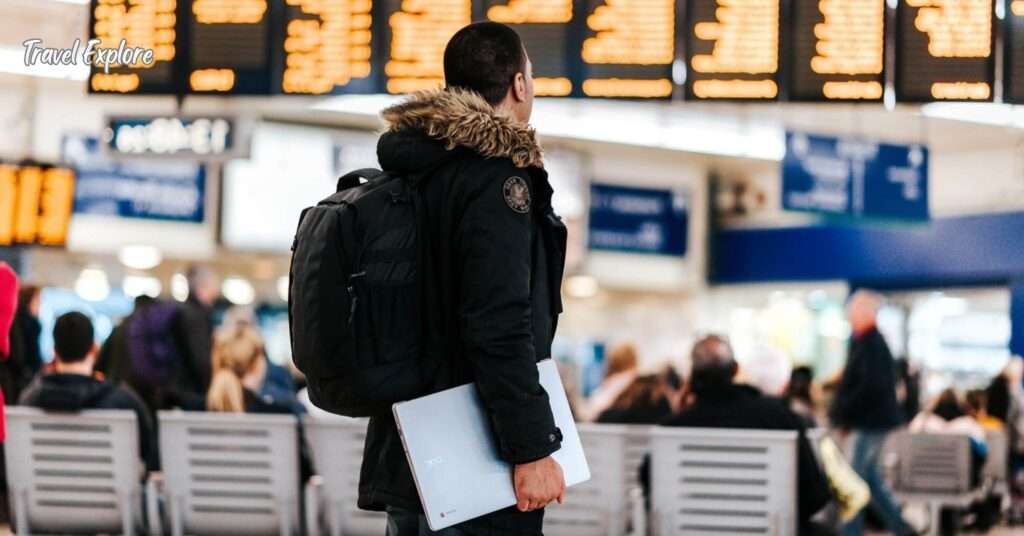
Safety while traveling encompasses a wide range of considerations, including political stability, crime rates, health risks, natural disasters, and more. Each of these factors plays a significant role in determining the overall safety of a destination for travelers.
Political Stability
Political stability refers to the condition in which a country’s government functions effectively, without facing significant internal or external threats to its authority or legitimacy. A politically stable environment is characterized by a peaceful transition of power, adherence to the rule of law, respect for democratic principles, and minimal risk of civil unrest or political upheaval.
In politically stable countries, institutions such as the judiciary, legislature, and executive branches operate independently and efficiently, ensuring governance continuity and stability. Citizens enjoy basic freedoms, such as freedom of speech, assembly, and expression, without fear of persecution or repression. Furthermore, stable political systems provide a conducive environment for economic growth, investment, and development, as businesses thrive in predictable and secure environments.
Travelers are drawn to politically stable countries due to the perceived safety and security offered by well-established governance structures and societal harmony. Monitoring political stability through government advisories and news sources is crucial for travelers, as political instability can disrupt travel plans, compromise personal safety, and escalate into broader security concerns. Therefore, considering political stability alongside other safety factors is essential when evaluating destinations for travel.
Natural Disasters
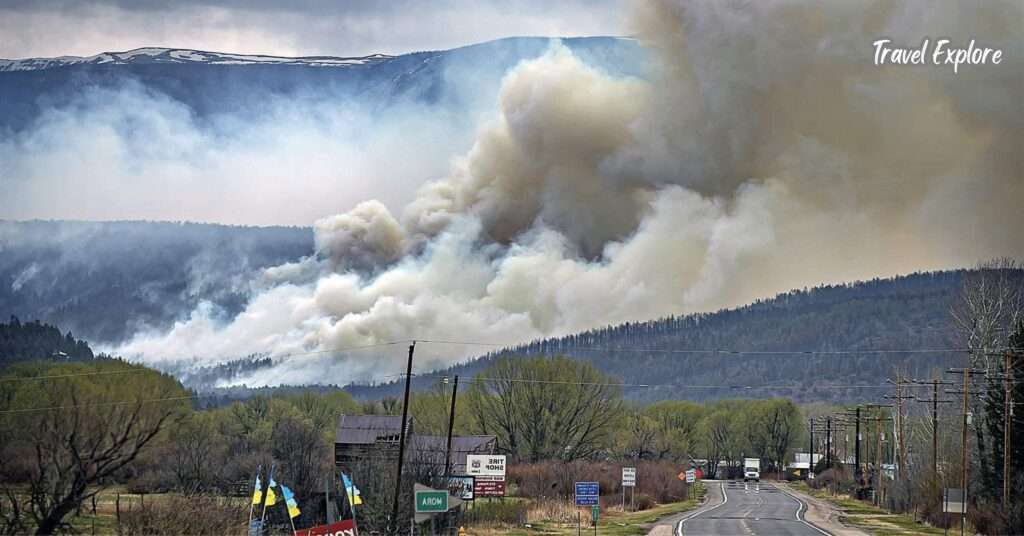
Natural disasters encompass a broad range of catastrophic events, including earthquakes, hurricanes, floods, wildfires, tsunamis, volcanic eruptions, and more, which result from natural processes of the Earth. These events can have devastating impacts on human lives, infrastructure, and the environment.
The risk of natural disasters varies significantly across different regions and countries, depending on factors such as geological location, climate patterns, and environmental conditions. Some areas are more prone to specific types of natural disasters than others, making them inherently riskier for travelers. For example, countries situated along earthquake fault lines or in hurricane-prone coastal regions face higher risks of experiencing these respective disasters.
Additionally, factors such as deforestation, urbanization, and climate change can exacerbate the frequency and severity of natural disasters, further increasing risks to travelers. Being aware of potential hazards and taking necessary precautions, such as staying informed about local weather conditions, having emergency evacuation plans in place, and following evacuation orders issued by authorities, are crucial for travelers visiting regions prone to natural disasters. Moreover, incorporating natural disaster risk assessments into travel planning and considering destination safety alongside other factors can help travelers make informed decisions and mitigate potential risks during their journeys.
Evaluating Safety Rankings

Several organizations and publications compile safety rankings for countries based on various criteria. These rankings serve as valuable resources for travelers seeking information on safe destinations.
Safe Cities Index

The Safe Cities Index (SCI) is a comprehensive assessment tool used to evaluate the safety and security of urban centers worldwide. Developed by The Economist Intelligence Unit (EIU), the SCI analyzes various factors to provide a holistic understanding of a city’s safety profile. These factors encompass four key categories: digital security, health security, infrastructure safety, and personal safety.
Digital security evaluates a city’s cybersecurity measures and resilience against cyber threats, including data breaches and online privacy concerns. Health security assesses the quality of healthcare services, emergency preparedness, and response capabilities to manage public health crises such as pandemics and disease outbreaks. Infrastructure safety focuses on the reliability and resilience of essential infrastructure systems, including transportation networks, utilities, and buildings, to withstand natural disasters, accidents, and other hazards.
Personal safety examines crime rates, law enforcement effectiveness, community policing initiatives, and overall perceptions of safety among residents and visitors. By examining these dimensions, the SCI provides valuable insights into the safety strengths and weaknesses of cities, helping policymakers, businesses, and residents make informed decisions to improve urban safety and security. Additionally, travelers can utilize the SCI to assess the safety of specific cities they plan to visit, enabling them to take appropriate precautions and enjoy a secure and pleasant travel experience.
Travel Risk Map

The Travel Risk Map is a valuable resource for travelers seeking to understand the safety risks associated with different destinations worldwide. Produced annually by International SOS and Control Risks, the Travel Risk Map categorizes countries based on travel risk levels, ranging from insignificant to extreme.
This comprehensive assessment considers various factors that may pose risks to travelers, including political stability, crime rates, terrorism, civil unrest, and natural disasters. By color-coding countries based on their risk levels, the Travel Risk Map allows travelers to quickly identify potential hazards and make informed decisions about their travel plans.
Green indicates low travel risks, while yellow signifies moderate risks that may require caution. Orange highlights high-risk destinations where additional precautions are advisable, and red denotes extreme risks where travel should be carefully reconsidered or avoided altogether. Additionally, the Travel Risk Map provides detailed insights into specific risks and security considerations for each country, empowering travelers to prioritize their safety and security while exploring the world.
By consulting the Travel Risk Map alongside other travel advisories and resources, travelers can proactively manage risks and enjoy safer and more enjoyable travel experiences.
Safe Countries for Travel
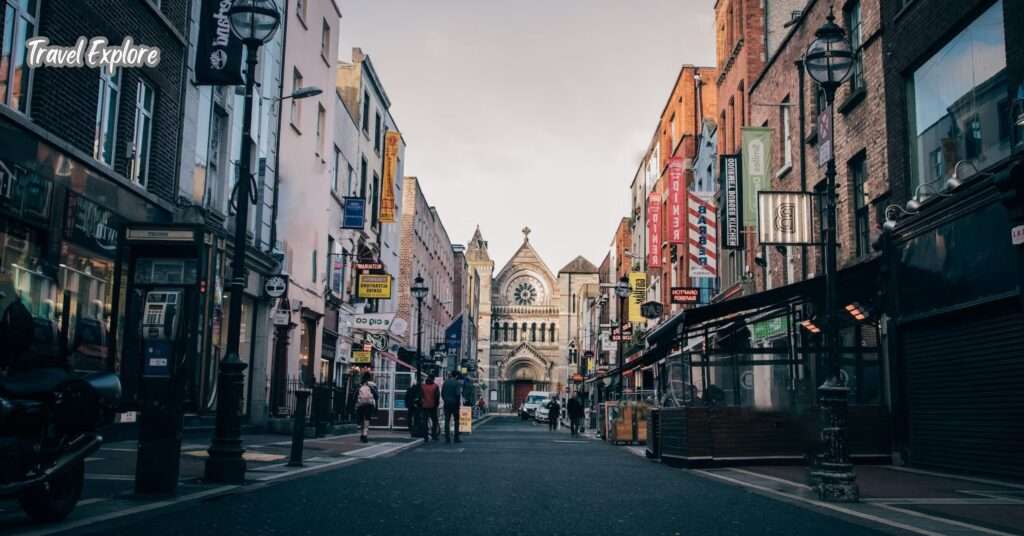
Based on safety rankings and expert assessments, certain countries consistently emerge as safe destinations for travelers. These countries prioritize security, have low crime rates, offer reliable healthcare services, and boast stable political environments.
Switzerland

Switzerland, renowned for its breathtaking alpine landscapes, efficient infrastructure, and high quality of life, is widely regarded as one of the safest and most stable countries in the world. Nestled in the heart of Europe, Switzerland boasts a long-standing tradition of neutrality, political stability, and diplomatic prowess, which contribute to its reputation as a haven of peace and security.
The Swiss government’s commitment to upholding the rule of law, democratic principles, and human rights ensures a stable and predictable legal environment, fostering trust and confidence among residents and visitors alike. With low crime rates, efficient public services, and a strong emphasis on environmental sustainability and social cohesion, Switzerland offers a high standard of living and a safe environment for residents and travelers alike.
Whether exploring charming medieval towns, indulging in world-class cuisine, or enjoying outdoor adventures in the majestic Swiss Alps, visitors to Switzerland can immerse themselves in a harmonious blend of natural beauty, cultural richness, and unparalleled safety and security. The country’s well-developed transportation network, including punctual trains, scenic railways, and pristine roads, further enhances accessibility and convenience for travelers, making Switzerland an ideal destination for those seeking a safe, tranquil, and memorable experience in the heart of Europe.
Canada
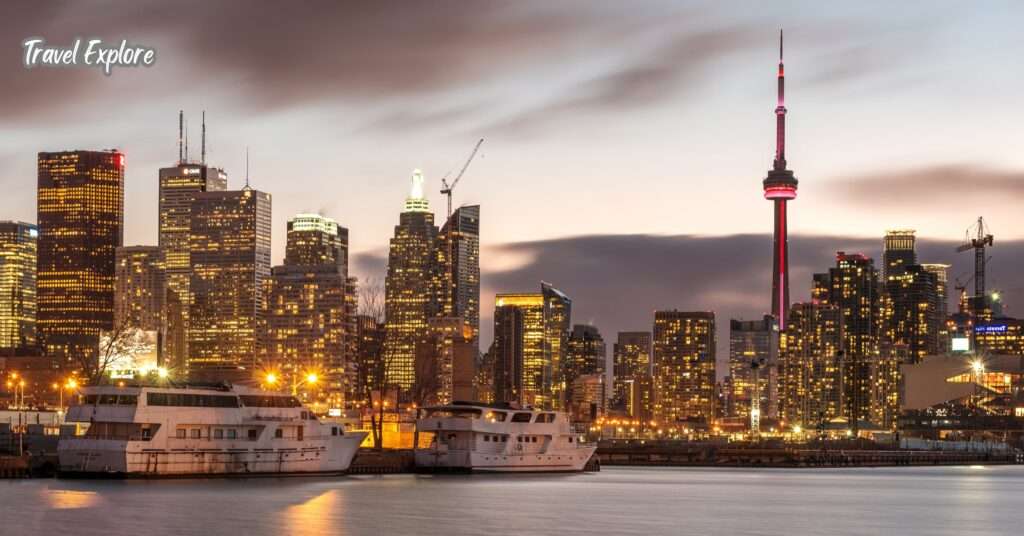
Canada, renowned for its vast natural beauty, multicultural cities, and welcoming atmosphere, is consistently ranked as one of the safest countries in the world. Situated in North America, Canada offers travelers a diverse range of experiences, from vibrant urban adventures to serene wilderness retreats, all within a secure and stable environment. The country’s commitment to inclusivity, diversity, and social justice fosters a strong sense of community and mutual respect among its residents, contributing to its reputation as a safe and harmonious society. With low crime rates, efficient public services, and robust healthcare infrastructure, Canada prioritizes the well-being and safety of its citizens and visitors alike. Whether exploring cosmopolitan cities like Toronto, Vancouver, or Montreal, or venturing into the pristine landscapes of Banff National Park, Niagara Falls, or the Canadian Rockies, travelers can enjoy peace of mind knowing they are in a secure and welcoming destination. Moreover, Canada’s progressive immigration policies and multicultural ethos create a rich tapestry of cultures, languages, and traditions, further enriching the travel experience and fostering connections among people from around the world. From the bustling streets of downtown Toronto to the tranquility of coastal villages in Newfoundland and Labrador, Canada offers travelers an unparalleled blend of safety, diversity, and natural splendor, making it a top choice for those seeking a secure and enriching travel experience.
Precautions for Safe Travel

While choosing a safe destination is essential, taking precautions while traveling is equally crucial to ensure a hassle-free experience.
Stay Informed
Staying informed is a critical aspect of ensuring a safe and enjoyable travel experience. Whether embarking on a weekend getaway or an extended international trip, travelers should proactively seek information about their destination to mitigate potential risks and make informed decisions.
This involves staying updated on a range of factors, including current events, travel advisories, weather forecasts, and local customs and regulations. Reliable sources of information may include government travel advisories, reputable news outlets, official tourism websites, and travel forums where fellow travelers share insights and experiences.
By staying informed, travelers can anticipate potential challenges, such as political unrest, natural disasters, or health advisories, and adjust their plans accordingly. Additionally, staying informed enables travelers to familiarize themselves with local customs, cultural norms, and safety tips specific to their destination, enhancing their overall experience and promoting respectful interactions with locals.
Whether checking for updates on flight delays, monitoring weather conditions, or staying abreast of safety precautions recommended by health authorities, staying informed empowers travelers to navigate unfamiliar environments confidently and responsibly, ensuring a smoother and more enjoyable travel experience.
Research

Researching your destination thoroughly is a fundamental step in ensuring a safe and fulfilling travel experience. Effective research involves gathering information about various aspects of your destination, including its culture, customs, language, climate, safety situation, and local laws and regulations.
By investing time in research before your trip, you can gain valuable insights into the destination’s unique characteristics, potential risks, and practical considerations, allowing you to plan and prepare accordingly. Utilizing reliable sources such as travel guides, official tourism websites, government travel advisories, and online forums can provide a wealth of information to help you make informed decisions.
Additionally, reading reviews and recommendations from other travelers can offer valuable insights and firsthand experiences, helping you anticipate challenges and identify must-see attractions or hidden gems. Researching transportation options, accommodation choices, and local amenities can also streamline your travel logistics and enhance your overall comfort and convenience during your trip.
Ultimately, thorough research empowers you to approach your travels with confidence, enabling you to navigate unfamiliar environments more effectively, maximize your enjoyment, and minimize potential risks or uncertainties along the way.
Conclusion & Recap
In conclusion, ensuring safety while traveling involves thorough research, informed decision-making, and proactive precautions. By considering factors such as political stability, crime rates, health risks, natural disasters, and terrorism, travelers can assess destination safety and plan accordingly.
Consulting safety rankings, travel advisories, and expert recommendations provides valuable insights into safe countries for travel. Countries like New Zealand, Japan, Switzerland, Canada, and Australia consistently rank high on safety indexes and offer secure environments for tourists.
However, regardless of the destination, taking precautions such as researching, staying informed, blending in, securing valuables, staying connected, and trusting instincts is essential for a safe and enjoyable travel experience. By prioritizing safety and being proactive in risk management, travelers can embark on adventures with confidence and peace of mind.
Frequently Asked Questions (FAQs)
What should I do if I encounter a medical emergency while traveling abroad?
In the event of a medical emergency, it’s essential to remain calm and seek immediate assistance. Contact local emergency services or visit the nearest hospital or medical facility for urgent medical attention. Additionally, having travel insurance with medical coverage can provide financial protection and assistance in coordinating medical care.
How can I protect my personal belongings from theft while traveling?
To minimize the risk of theft, consider using anti-theft accessories such as lockable bags, secure backpacks, and money belts to safeguard your valuables. Avoid carrying large sums of cash and keep important documents like passports and credit cards in a secure location. Remain vigilant in crowded areas and be cautious of pickpockets.
What precautions should I take to stay safe while using public transportation in unfamiliar cities?
When using public transportation, be aware of your surroundings and avoid displaying expensive belongings that may attract attention. Research transportation routes and schedules in advance, and opt for well-lit and populated areas when waiting for buses or trains, especially at night. Keep your belongings close and be mindful of potential scams or suspicious behavior.
How can I ensure food and water safety while traveling to developing countries?
To prevent foodborne illnesses, stick to reputable restaurants and street vendors with good hygiene practices. Avoid consuming raw or undercooked foods, and opt for bottled or purified water to stay hydrated. Wash fruits and vegetables thoroughly or peel them before eating. Consider bringing water purification tablets or a portable water filter for added safety.
What steps should I take to prepare for natural disasters or emergencies during my trip?
Before traveling, familiarize yourself with potential natural hazards in your destination, such as earthquakes, hurricanes, or tsunamis, and have an emergency plan in place. Register with your embassy or consulate for travel alerts and updates, and keep emergency contact information handy. Pack a basic emergency kit with essentials like first aid supplies, flashlight, batteries, and non-perishable food items.
How can I stay connected with family and friends while traveling internationally?
To stay connected while abroad, consider purchasing a local SIM card for your phone or activating an international roaming plan with your mobile carrier. Alternatively, utilize messaging apps and social media platforms to communicate over Wi-Fi networks. Sharing your itinerary with loved ones and establishing regular check-ins can provide peace of mind for both you and your contacts.
What cultural etiquette should I be mindful of when visiting foreign countries?
Respecting local customs and cultural norms is essential for fostering positive interactions and avoiding unintentional offense. Take the time to learn basic greetings, gestures, and phrases in the local language. Dress modestly and appropriately for religious sites or conservative communities. Be mindful of cultural taboos regarding gestures, personal space, and social interactions, and always ask for permission before photographing people or sacred sites.
